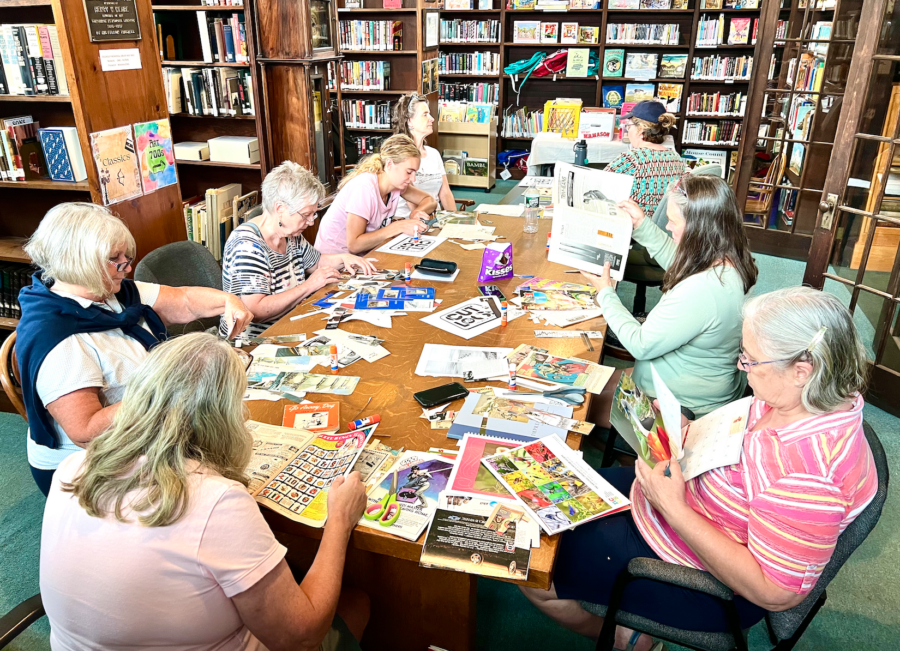
The Loneliness Epidemic
Loneliness has become a pressing public health concern, with the Surgeon General’s 2023 Advisory labeling it an epidemic. This isolation is more than an emotional state—it impacts mental and physical health, leading to increased risks of depression, anxiety, and even heart disease.
Libraries are ideal for tackling loneliness through community-building programs. As welcoming spaces, they naturally foster community and connection. Research from Creative Library Practice shows that libraries play a key role in reducing isolation through library activities by offering inclusive, accessible programs.
Libraries as Social Connectors
Libraries have long been community hubs where people gather, learn, and connect. They offer safe, inclusive spaces for engagement beyond just books. In my Cut Loose Collage Workshops, I’ve seen this firsthand—participants cut, paste, and create side by side, sparking conversations, laughter, and connections that wouldn’t happen otherwise.
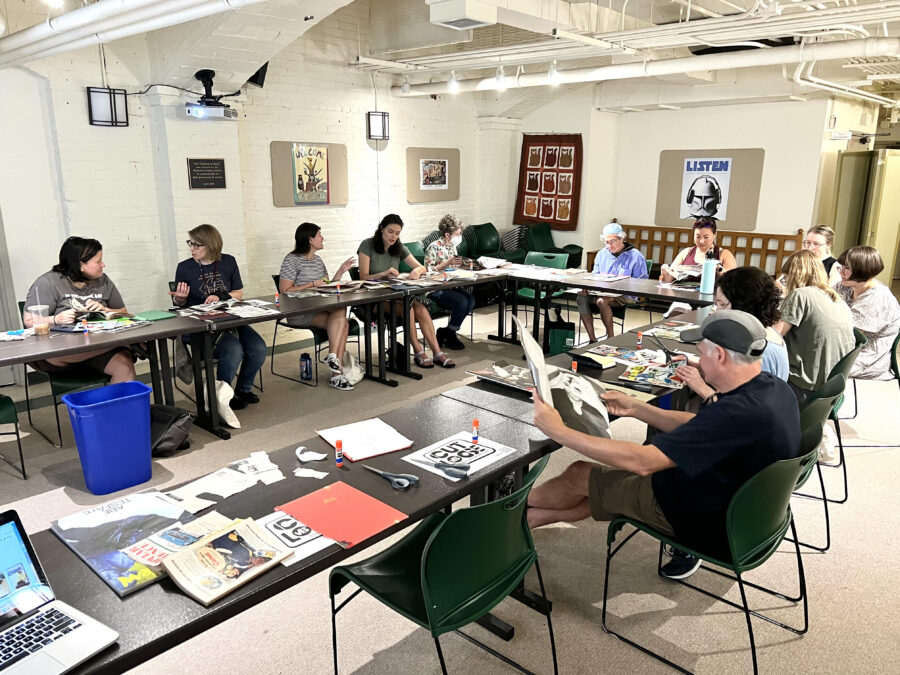
Challenges for Program Directors
Designing affordable library programming ideas is no easy task for program directors, who must balance tight budgets with diverse community needs. The key is offering impactful programs that address issues like loneliness and promote mental wellness, all while staying cost-effective for both the library and its patrons.
How Do Collage Workshops at Libraries Help Reduce Loneliness?
Collage workshops provide a relaxed, judgment-free space where participants of all ages can express themselves while working side by side. These accessible art workshops for libraries encourage subtle but powerful bonding through creative activity. Whether they’re sharing stories or simply working in quiet companionship, participants leave feeling more connected and less isolated.
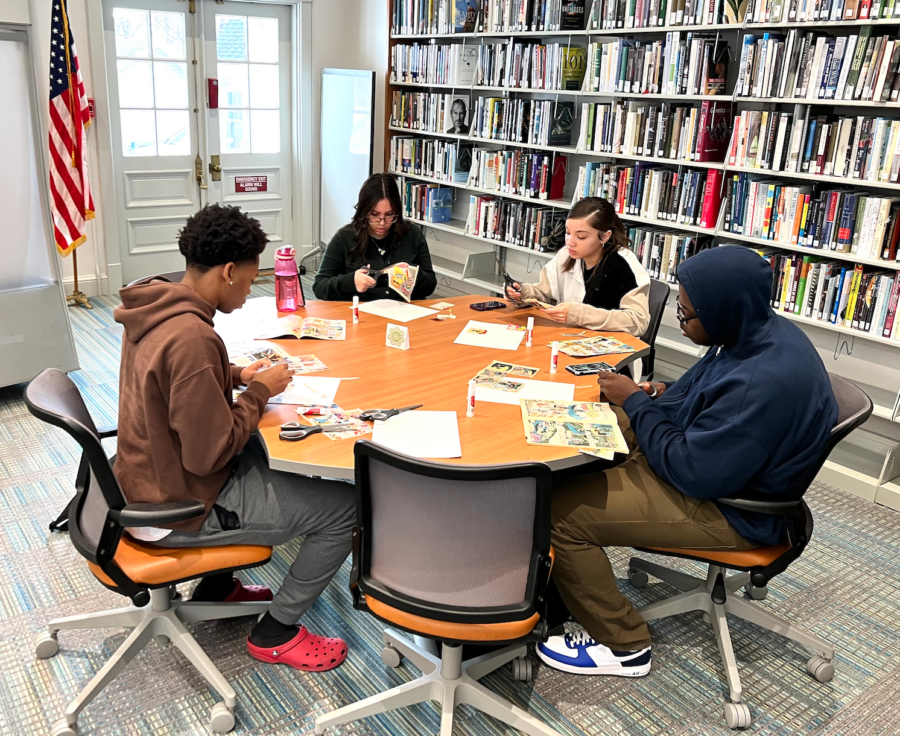
Collage Workshops: A Solution to Combat Loneliness
Collage-making is a simple, accessible way to reduce isolation through library activities. According to the International Arts + Mind Lab (IAM Lab), creative practices like collage workshops can reduce feelings of isolation and loneliness. In my article about “parallel play” for adults, I explain how working on individual projects side by side encourages subtle but powerful bonding. These workshops offer a relaxed space for participants to connect without pressure, promoting social interaction at their own pace.
Intergenerational Engagement and Inclusivity
Collage workshops are a perfect example of intergenerational art activities that bring together participants of all ages. In my recent upcycled book cover collage workshop at Forbes Library in Northampton, MA, teens and seniors alike enjoyed creating together, sharing stories as they worked—and during the “art show” at the end of the session.
With no artistic skill required, collage workshops remain accessible to everyone, regardless of age or ability. This accessibility makes them an ideal option for community-building programs at libraries.
Mental Health Benefits and Skill Development
The mental health benefits of collage workshops are well-documented. Collage-making can help reduce stress, improve focus, and boost emotional well-being. These workshops provide a space for participants to relax, recharge, and let their creativity flow, which is essential in our increasingly stressful, digital-first world.
Beyond mental health, collage workshops allow participants to learn new skills and experience a sense of accomplishment. Whether they’re discovering a new technique or simply finishing a piece they’re proud of, the process of creating something tangible can boost confidence and leave participants feeling more empowered.
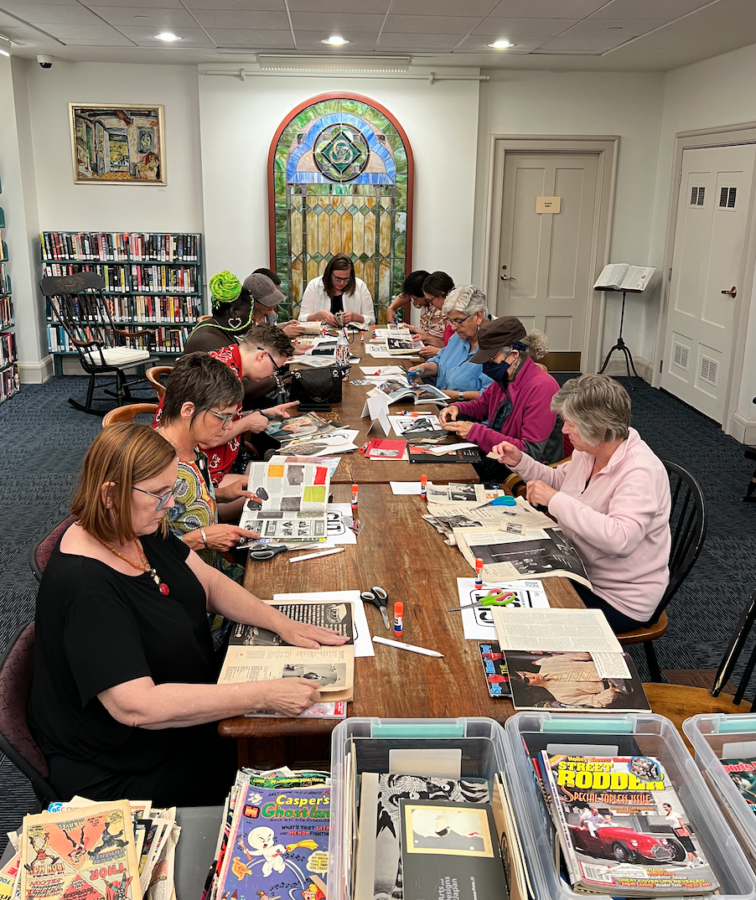
Sustainability, Accessibility, and Building Connection
Collage workshops not only address loneliness but also align with libraries’ sustainability goals. Using recycled materials like old magazines and books, these workshops are both eco-friendly and cost-effective. By making art creation accessible and affordable, libraries can provide a welcoming space for all community members, helping them connect through shared, low-cost activities. This resourceful approach ensures everyone can participate, reducing financial barriers that might otherwise contribute to social isolation.
Practical Tips for Running Collage Workshops
Here are a few practical tips for running successful accessible art workshops for libraries:
- Materials: All you need are old magazines, books, comic books, newspapers, scissors, glue, and a few creative minds. Recycle materials from the library or invite participants to bring their own.
- Themes: Offer themed workshops to spark engagement—ideas like “Dream Homes,” “Vision Boards,” or “Vintage Vibes” can inspire creativity.
- Interaction: Encourage interaction by introducing collaborative elements, like pairing participants or having them share their completed works.
- Collage Clubs: Consider creating ongoing collage clubs to build regular interaction and foster a sense of community over time.
Measuring the Impact
To assess the effectiveness of these workshops in reducing isolation through library activities, consider collecting feedback through pre- and post-workshop surveys. These can measure shifts in social engagement or mental wellness. Participant testimonials can also be a powerful way to illustrate the personal impact these workshops have.
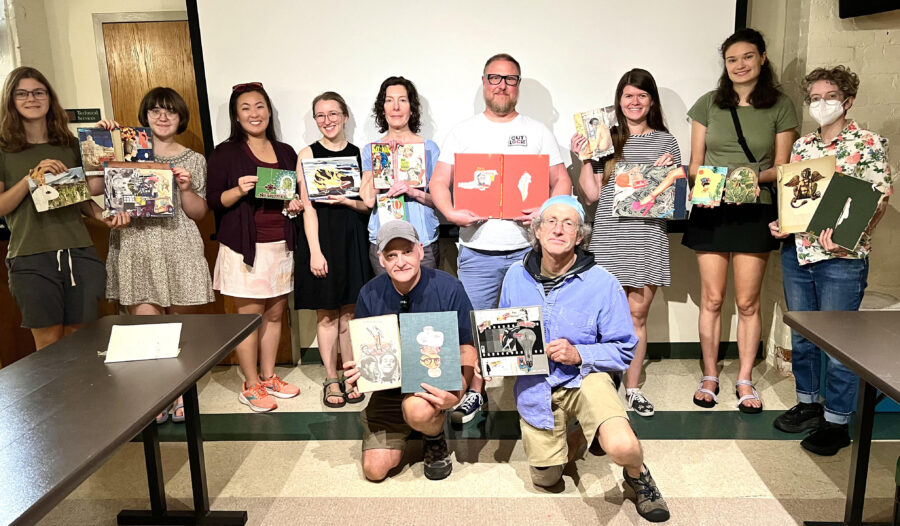
Collage Workshops: A Creative Solution for Combating Loneliness
Collage workshops provide libraries with an accessible, affordable, and sustainable way to address community loneliness. They create space for social interaction, promote mental well-being, and foster creativity—all while being fun and inclusive.
Program directors should consider incorporating these workshops into their programming, as they offer a practical, low-cost solution to a critical issue. Together, we can cut through the loneliness and help our communities build meaningful connections.
If you found this guide helpful, share it with fellow program directors or community organizers who are looking to combat loneliness through creative programming!
Bring Cut Loose Collage Workshops to your library! Learn more here.

